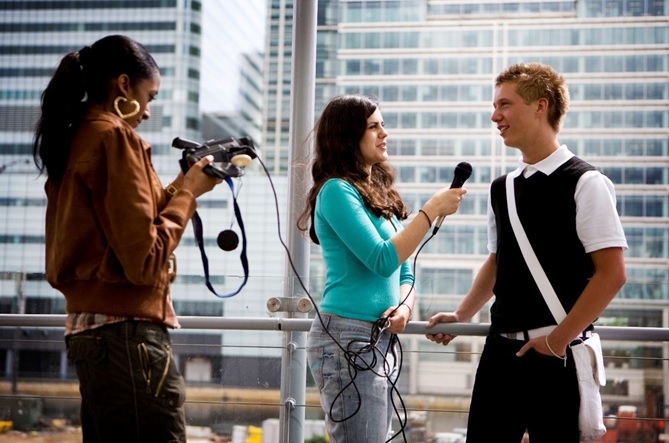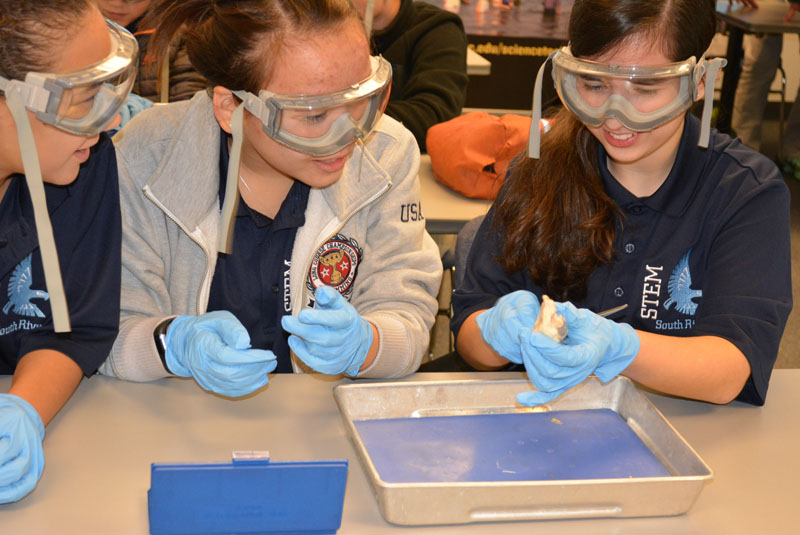Whether preparing for a mass communication course or specialized journalism, it always pays to limber up before you head into the exam hall.
If you have designs on becoming a successful journalist, you must build a substantial body of work and prove that you can adapt to multiple storytelling challenges.
And that is not all! Journalism is not purely about telling stories but is also about your command of the written language, showing you understand the topics you are writing about, and being able to sell information to a wide range of audiences.
Much of this, you will demonstrate in your journalism exams. But what can you do to adequately prepare – what is going to ensure you have the perfect fighting chance of getting a passing or even excelling grade? Let’s take a look.
Don’t ignore the reading list
Any experienced journalist will probably tell you that the job is just as much about reading as it is about writing and broadcasting. After all, to demonstrate your journalism skills, you will always need to research, and report based on various available sources.
Therefore, the best place to start is to read those recommended texts listed by your course leaders. It is tempting to cut corners – but if you really want to get your course off to the best possible start, knowledge will always be the best weapon in your arsenal. It is enticing to think you can just head into a journalism exam and get great marks ad-hoc. Few are quite so talented (or so lucky)!
The exact reading list you will receive will depend on the particular university you study with and the specific type of journalism you enter into. For example, if you choose to start studying for a Sports Journalism Masters at St Bonaventure University, you may need to read specific sports broadcasting works.
That said, the intake team at SBU will likely recommend you dive into a wealth of general journalism resources, too. For example, David Randall’s “The Universal Journalist” provides exceptional insights into how to source stories, question viewpoints, and make the most out of quotes.
The worst thing you can do before any journalism exam is to assume the answers will come to you innately. Be sure to read recommended sources, go beyond, and read secondary and tertiary sources. You can never read too much.
Read how others write and watch how others broadcast
While it is great to read a recommended list of sources from your course provider, you should also take time to read how journalists and broadcasters present their own stories in the wider press.
Published journalists gain the praise of various news outlets and wide readerships. You should also take considerable time and effort to watch how specific broadcasters handle tricky stories and how different news outlets portray the same stories differently.
Noticing these touches and picking up on techniques will help you carefully navigate some of the more creative angles that journalism exams may expect you to bend to.
Keep up to speed on current affairs
The questions you will face in a journalism exam will likely center around current affairs in one form or another. This is all the more to your benefit – it at least means you won’t have to enter the exam room with prior knowledge of something that happened during the dark ages.
However, wielding a firm grasp of some of the biggest movements in politics, world affairs, entertainment, and sport, for example, will help you to approach specific case study questions with fresh confidence. While it is likely you will receive some background information for practical questions and demonstrations, a little prior understanding of your own can help your cause.
This means you may even be able to add your own spin to a particular event that is the topic of a lengthy question. You can derive information from your prior reading and knowledge without resorting to guesswork.
Naturally, an examiner will not expect you to know absolutely everything about everyone. That said, you must demonstrate at least some understanding of if not appreciation for, emerging news and the world around you. After all, the most knowledgeable and information-thirsty journalists go on to create the most interesting stories.
Keep bias to one side
Unless a question asks you to lean towards a specific audience or political bias during an exam, always enter with an open mind. Showing personal bias or political leanings during a journalism exam could result in you losing marks.
While news outlets and broadcasters lean toward specific viewpoints, journalists must always learn to create stories and generate interest or excitement from a neutral perspective. After all, simply presented with the facts, audiences can make up their own minds – it is a fundamental tenet of ethical journalism.
That said, you may need to move towards specific audience demands depending on the type of journalism degree you are studying for. For example, if you are studying for an entertainment reporting module, you will need to be entertaining, too – which means you will need to get creative.
Otherwise, flat, boring facts may not get you too far, either in the exam hall or your long-term career. Simply put – head into any journalism exam with a generic viewpoint but be prepared to adjust on the go where questions demand you to.
You are going to need historical knowledge
Depending on the type of journalism exam you study for, you will likely need to retain some historical knowledge about news and story reporting, at least in the US (if not worldwide). While it is impossible to retain the knowledge of every single moment in every US paper’s history, it is wise to learn the basics.
For example, can you remember when the New York Times started producing papers? How long has CNN been on the air for? Which US TV journalist has the longest tenure?
While these nuggets of knowledge may not help you practically long-term, a basic knowledge of journalism history demonstrates that you genuinely care about the craft and understand why certain historical beats took place.
After all, if you are going to help provide toward the future of journalism, it makes sense to have some demonstrable knowledge of the past!
Practice what you preach – and vice-versa
Journalism exams will likely pose questions of two distinct types – practical and theoretical.
Practical questions require you to show an invigilator your journalistic skills. You will need to demonstrate your headline writing, reading comprehension, and ability to condense basic details into written prose.
Beyond that, even if examiners do not expect you to demonstrate every last tenet of journalistic technique, you will probably need to show that you understand such practices and principles.
For example, do you know the first steps in writing a story? What would you call the process of translating thought into words?
If you don’t know the answers yet, don’t worry – but by the time your exams come around, you must have them clear in mind.
Try a practice exam
Though not all specialized journalism degrees will have mock or practice exams available for you to try online, examiners still recommend you hunt them down before you enter the exam room for real.
Online exams and practice tests give you a general idea of the intensity of questions you are likely to face in a journalism examination.
For example, you may get a taste of the type of creative or exploratory questions you may have to write extensively on. On the other hand, there is a chance you may also get to sample a few multiple-choice questions.
Practice exams are highly recommended for journalism tests purely because it is such a broad field to study and revise for. While you can enter your exam(s) full of historical and practical knowledge, you will never truly know what questions you will face.
You do not have to go it completely alone, either. Once registered to a course and your studies are underway, it is good practice to ask your course tutors for mock papers you can test your knowledge with before the “big day.” In some cases, course providers offer previous exam papers as standard, purely to demonstrate to learners what to expect in the hot seat.
Practice writing generally
There is nothing to say you have to stick so rigidly to exam frameworks and specific topics when studying for an upcoming test. In fact, a great way to prepare for some of the more creative aspects of journalism exams is to practice your writing, period.
Find a news story or topic that is both current and pulls in plenty of divisive opinion and interest. Try and write on said topic in multiple different ways. Try from a generic, unbiased viewpoint, and then consider how you would reframe and rephrase it for specific audiences and papers.
Do also read up on writing techniques from established journalists and those who regularly produce articles for leading papers and broadcasters. Are there any techniques or touches in some of your favorite pieces you would like to emulate?
We have already mentioned the importance of “learning your craft” through reading existing stories and watching broadcasts. Developing your writing alongside watching and reading for the full 360 degrees is a great idea.
Build on your time management skills
Once you are in the exam hall, you will have very little time or room to get too flowery or elaborate with your answers (or storytelling if you need to answer questions creatively). Therefore, honing your time management skills is vital to ensure you answer every question within the time frame set.
This is, again, where practice or previous exam papers can come in very useful. By following the previous question setup from an old paper, you can safely prepare for your upcoming exam by allowing yourself enough time to read and answer each query.
Many people read through papers in full before starting to write on them. This means you will have a head-start on what the entire paper demands of you, and you will not find yourself surprised by a hidden question toward the back of a paper.
This is not always possible if you take exams online. However, you should still have a view of how far along you are in the examination. Look carefully at the number of points allocated to each answer, too. Which questions will likely demand the most attention from you, and which will offer you the most points in return for your knowledge?
Again, not everyone has the luxury of being able to see ahead into future questions and their points weighting. However, if you do, use this to your advantage. Check out past papers – the examination board will likely follow a similar setup again.
Refine your reading
Yes – we have already stressed how important reading is when it comes to examination preparation – but you can also change how you read and write.
When you start revising or studying for a journalism exam, it is tempting to skim-read as many resources as possible to ensure you are fully prepared for your quiz. While you may be a skilled speed reader, you risk losing out on much of the nuances and context within a piece of journalism if you are so focused on reading at speed.
It pays not only to take your time reading through critical articles and books on your course’s reading list but to do so while making notes and bookmarking areas of interest to you. It is a good idea to purchase books outright that you can physically highlight and earmark with Post-it notes to easily refer to the most important passages that grab your attention again.
Do also keep in mind that not all pieces of journalism will align with your worldview or political compass. While you may not always choose to read The Huffington Post or do not typically watch Fox News, it is good practice to get a full “appreciation” of different styles of journalism.
You do not have to take out a subscription to a paper you disagree with. However, read occasional articles online and apply your practical and critical knowledge wherever possible.
Do not leave gaps
Everyone has made decisions during revision and study that they regretted later on, especially regarding knowledge gaps. If there are any techniques or historical concerns you do not understand or know much about, you must work to fill these in before you sit your exam.
You do not have to source the answers online or at the library. Course leaders will likely be more than happy to steer you in the right direction. It may also be fairly wise to reach out to expert journalists in your field, who may provide exclusive insight to help you on your way.
Above all, you should try to cover as many “bases” as possible before heading to the exam. Journalism is an endless craft in that while there are right and wrong ways to deliver stories and commentary, creative answers take unlimited shapes and forms. Just make sure you know all the basics before dipping into more technical knowledge.
Plan ahead and take breaks
Last of all, and perhaps most importantly, as with any exam prep, always set up a clear timetable of study that you can practically stick to weeks ahead of your test.
You must not adopt that “cramming” mindset. Squeezing weeks of study time and revision into a weekend is unhealthy and not conducive for exam success. Cramming doesn’t work!
Take regular breaks to allow your brain to catch up. Diversify your study, too. Do not just read endless books – find video guides, try practice tests, and practice the skills you learn in your own writing. Varied study methods help the techniques and theory you learn to settle in better.
There is no perfect study plan
While you should always cover journalism basics such as byline practice, authentic reporting standards, and using digital doorstepping, your study method should appeal to your learning style alone.
The best things you can do to prepare for a journalism exam include reading recommended sources, practicing your writing, and making sure you are up to speed with the latest current events and story drivers.
From there, you should always try and take on practice tests, reach out to experts for advice, and plan a study timetable that is healthy and attainable.
Journalism exams are not likely to make up 100% of your course grading. However, that doesn’t mean you should stop taking them seriously. Try our above tips, and you will enter the exam hall or online test with renewed confidence.
If all else fails, you will build a superb arsenal of journalistic skills that you can build on and develop for future exams and take into the real world of reporting and broadcasting. That said – focus on exam success as a priority!





